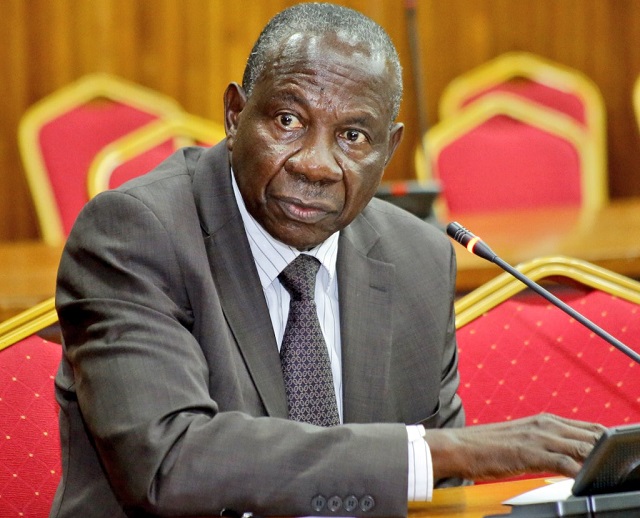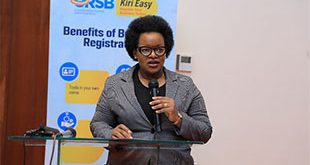
Kampala, Uganda | THE INDEPENDENT | Government has tabled before Parliament a proposed 49.9 trillion Shillings National Budget for the coming financial year 2023/2024.
This indicates a slight increase of 1.85 trillion from the 48.13 trillion approved budget for the current financial year 2022/2023.
The figures are contained in the National Budget Framework Paper tabled before Parliament on Friday by the Minister of Finance, Matia Kasaija.
“The preliminary resource envelope for financial year 2023/2024 is projected at 49.98 trillion, compared to 48.13 trillion for financial year 2022/2023. It should however, be noted that whereas the resource envelope has increased by 1.858 trillion, the discretionary resource envelope reduced by 2.533 trillion due to the projected increase in the interest obligations and obligation to settle Bank of Uganda redemptions,” reads Kasaija’s document.
The proposed 49.98 trillion budget will be financed through domestic revenue equivalent to 28.83 trillion, budget support amounting to 2.491 trillion, domestic borrowing 1.585 trillion, external project support worth 8.04 trillion, domestic refinancing of 8.798 trillion, and local revenue for local government (AIA) of 238.5 billion Shillings.
According to Kasaija, Government discretionary resources (resource envelope less amortization, domestic debt payment (Band of Uganda), interest payments, external project support, domestic refinancing, domestic arrears, and local revenue) is equivalent to 22.86 trillion.
The Budget theme has been maintained as “Full Monetization of the Ugandan Economy through Commercial Agriculture, Industrialization, Expanding and Broadening Services, Digital Transformation and, Market Access”.
“For purposes of continuity in the realization of our development agenda for socio-economic transformation for all Ugandans, the budget theme is the same as that of this financial year 2022/2023,” said Kasaija.
Hon. Matia Kasaija, the Minister of Finance, Planning and Economic Development has tabled a Shs49.9 trillion national budget framework paper for the financial year 2023/2024. This reflects an increase of Shs 1.8 trillion from this year’s budget of 48.1 trillion shillings pic.twitter.com/tE8PcfAyKq
— Parliament of Uganda (@Parliament_Ug) December 23, 2022
Kasaija said that the theme is anchored on the overall East Africa Community’s agenda of accelerating economic recovery and enhancing productive sectors for improved livelihoods and in agreement with the Sustainable Development Goals.
He said that government remains committed to supporting initiatives that accelerate and sustain inclusive economic growth without compromising macroeconomic stability, debt sustainability and green growth.
Kasaija said that this will be through several measures such as focusing expenditure on interventions that have high multiplier effects on the economy; import replacement and export promotion; job creation; enhance domestic revenue mobilization and public debt management.
The Minister added that government will further continue to use coherent, cohesive, and well-coordinated fiscal and monetary policies to support economic recovery and to minimize the impact of external economic shocks on Uganda’s economy.
“In financial year 2023/2024, economic growth is expected to strengthen to 5.3 percent, supported by Government initiatives like the Parish Development Model and EMYOOGA; the pickup in oil sector construction activities; growth in regional trade; and a rebound in agricultural production owing to Government interventions into agricultural productivity,” further reads the National Framework Paper.
The document further indicates that over the medium term, economic growth is projected to average between 6 percent and 7 percent, driven by anticipated increase in productivity within agriculture and manufacturing sectors-supported by Government interventions; recovery in the private sector activity; public infrastructure investments and operations in the oil and gas sector.
Deputy Speaker, Thomas Tayebwa referred the National Budget Framework Paper to the committee on Budget and other relevant sectoral committees for consideration and report back to Parliament by 20th January 2023.
Section 9 (3) and Section 9 (5) of the Public Finance Management Act, 2015 requires the Minister of Finance to submit before Parliament the Budget Framework Paper by 31st December, and by 1st of February, the House should have approved the budget framework paper.
However, the Leader of Opposition Mathias Mpuuga tasked the Minister to equally provide a hard copy of the framework, stating that the last financial year the Minister presented a framework with several changes.
Minister Kasaija committed to avail hard copies of the Framework Paper. He also tabled the certificate of compliance from the Equal Opportunities Commission (EOC).
*****
URN
 The Independent Uganda: You get the Truth we Pay the Price
The Independent Uganda: You get the Truth we Pay the Price



Who benefits from uganda’s budget?. Is it the leaders or the led!